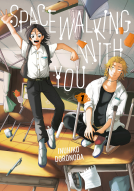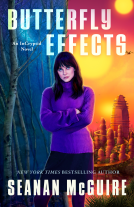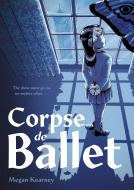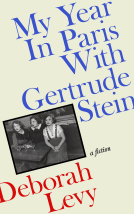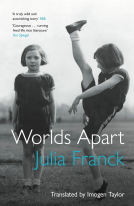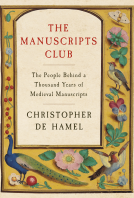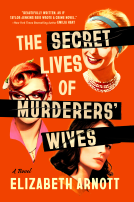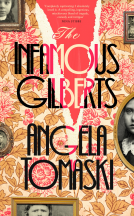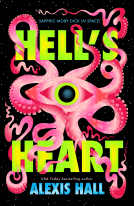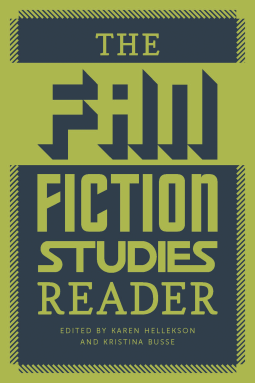
The Fan Fiction Studies Reader
by
This title was previously available on NetGalley and is now archived.
Send NetGalley books directly to your Kindle or Kindle app
1
To read on a Kindle or Kindle app, please add kindle@netgalley.com as an approved email address to receive files in your Amazon account. Click here for step-by-step instructions.
2
Also find your Kindle email address within your Amazon account, and enter it here.
Pub Date Feb 15 2014 | Archive Date Jan 22 2015
University of Iowa Press | University Of Iowa Press
Description
Organized into four thematic sections, the essays address fan-created works as literary artifacts; the relationship between fandom, identity, and feminism; fandom and affect; and the role of creativity and performance in fan activities. Considered as literary artifacts, fan works pose important questions about the nature of authorship, the meaning of “originality,” and modes of transmission. Sociologically, fan fiction is and long has been a mostly female enterprise, from the fanzines of the 1960s to online forums today, and this fact has shaped its themes and its standing among fans. The questions of how and why people become fans, and what the difference is between liking something and being a fan of it, have also drawn considerable scholarly attention, as has the question of how fans perform their fannish identities for diverse audiences.
Thanks to the overlap between fan studies and other disciplines related to popular and cultural studies—including social, digital, and transmedia studies—an increasing number of scholars are turning to fan studies to engage their students. Fan fiction is the most extensively explored aspect of fan works and fan engagement, and so studies of it can often serve as a basis for addressing other aspects of fandom. These classic essays introduce the field’s key questions and some of its major figures. Those new to the field or in search of context for their own research will find this reader an invaluable resource.
Advance Praise
“An outstanding introduction to fan studies, this excellent book collects many key contributions in the field’s short but vibrant history and frames their central questions and debates fruitfully and with insight.”—Jonathan Gray, coeditor, Fandom: Identities and Communities in a Mediated World
“This volume will be a significant contribution to the literature and the subdiscipline.”—Anne Kustritz, University of Amsterdam
Available Editions
| EDITION | Other Format |
| ISBN | 9781609382278 |
| PRICE | $29.95 (USD) |
Average rating from 22 members
Featured Reviews
This is going to be a useful book for my research and will give me valuable material to share with my students
 Librarian 105878
Librarian 105878
Fan Fiction seems to have become its own genre, with critical studies examining the genre. This book, The Fan Fiction Studies Reader, edited by Karen Hellekson and Kristina Busse is such an examination.
I have been familiar with 'fan fiction' since the late 1970's -- before it had a specific label as 'fan fiction.' My own introduction to the form was through the television show, Star Trek. Not surprisingly, the bulk of the articles in this book also deal with Star Trek related fiction. In some ways, that's a bit of a problem. Fan fiction has become so much larger than a bunch of Star Trek nerds writing about their favorite characters. It has become more than a means to write pornography using familiar characters. This book might have done itself a favor and labelled it "Volume 1" as there are clearly many more essays about a wide variety of media and characters that fans write about.
But...speaking specifically to this book, I will admit that I was enlightened and learned a few things. Granted, I'm not deeply ensconced in fan fiction myself (not since the late 80's), but I did learn what a Mary-Sue story is (and that I've never liked them).
The editors wrote (almost at length) between each essay, to set up the topic that the essay would address. Some of their comments were as enlightening as the included essay. In Part 3, "Fan Communities and Affect" they put in to writing something I've long felt was true:
...watching the Super Bowl or going to the theater or collecting stamps, all fannish activities in their own right. Yet fans of popular culture are often dismissed ... and media fans in particular are frequently represented as displaying unhealthy, obsessive, even pathological behavior....
I think that the internet and social media have changed this a bit ... when it's easy to find people who share the same passion as you, it's easier to feel comfortable expressing fannish behavior. Take a look at the growth of things like 'cosplay' as an example.
One aspect of fan fiction that is addressed, which I am aware of but have never been interested in reading, is what is called 'slash' fiction. This has typically been identified through Kirk/Spock (read "Kirk slash Spock") stories in which there is a sexual relationship between the two male figures (I hesitate to refer to it as a homosexual relationship for reasons identified in at least one of the essays). Kirk/Spock is not the only slash fiction in fan fiction. Another popular slash is Xenia/Gabrielle, and there are countless others as well.
While I've never been drawn to read this sort of fiction, it's a personal taste. I took issue with a comment in Chapter 9, "Future Men" by Constance Penley when she writes:
... The Trekkers have had to struggle mightily, however, to find the right language to deride and dismiss the slashers. After all, Trekdom is a culture that believes itself superior to the rest of the U.S. society in the strength of its allegiance to the values of democratic equality and tolerance for differences.
I can't help but wonder where this statement comes from. There are eleven footnotes in this article, but nothing to state where the generalization that Trekkers want to deride and dismiss 'slashers' comes from or where the data comes from to identify the statement that Trekkers believe themselves superior to the rest of U.S. society in any thing. She goes on to write:
The slash version of Star Trek threatens the Trekkers because it is not only sexually but politically scary, with its overt homoeroticism throwing into sharp relief the usually invisible homosocial underpinnings of Trekdom, the Federation, and U.S. culture.
I just don't understand how the author comes to these conclusions. Slash fiction has gotten a fair amount of attention because it's out of the ordinary (though with sexual fiction hitting the 'big time' [ie: Fifty Shades of Grey] it's no longer such a fringe element), and if there's a movement from within fandom against it, it's more likely because fans already get derided (see the first quote I used from the book) by non-fans and they (we) don't need to add to it for something they (we) don't participate in. "Threatened?" I don't think so. I can't say that I've ever met a Star Trek fan who was "threatened" by slash fiction (if they were even aware of it). I wouldn't deny that Trekkers make up as diverse a cross-section of individuals as any other fannish activity and that there could well be individuals who would react in such a way, but I truly can't believe that this generalization of Constance Penley's reflects a majority as her writing implies. This was really a remarkable, negative generalization.
On a positive note, I really appreciated Francesca Coppa's article "Writing Bodies in Space: Media Fan Fiction as Theatrical Performance." She writes and compares fandom to theatrical interests.
In theatre, there’s a value to revising the same text in order to explore different aspects and play out different behavioral strips; similarly, in television, we don’t mind tuning in week after week to see the same characters in entirely different stories. We don’t mind new versions of Hamlet the way we don’t mind new episodes of Star Trek. We don’t say, “Oh, Star Trek again? We had Star Trek last week!” We don’t mind if Kirk and Spock visit—as they did on the aired series—a planet based on Roman gladiator culture, or Native American culture, or America during the Great Depression. Most people happily watch televised repeats—identical replayings of dramatic action. How much more interesting would different performances of the same scripts be if the actors and directors explored the limitations of the text and tried to elicit different readings, different embodied meanings? And because fan fiction is an amateur production accountable to no market forces, it allows for radical reimaginings: plots, themes, and endings that would never be permitted on network television. One could imagine Star Trek by David Lynch, Star Trek by Stanley Kubrick, Star Trek by Woody Allen—and what I’m getting at here is that that’s what fan fiction is.
This actually sounds exciting, and gets to the root of fan fiction in a way that I hadn't thought about before. She begins her final paragraph (which concludes the book as well) with an almost perfect analogy:
I believe that fandom is community theatre in a mass media world; fandom is what happened to the culture of amateur dramatics. In the days before television, people often made theatre in their homes, for fun, and in fandom, we still make theatre together, for fun, except we cast the play from our televisions sets. Theatre—actual, three-dimensional theatre that moves bodies in space—is expensive and requires tremendous social capital...
I didn't agree with every essay in the book, and some I thought were perhaps a little dated, but over-all I really liked that there are critical essays on the genre of fan fiction (even if it is likened to community theatre) and I hope that there will be more, addressing a wider range of media fandom.
This book contains the following:
Acknowledgments Introduction: Why a Fan Fiction Studies Reader Now?
Part 1. Fan Fiction as Literature 1. Henry Jenkins - "Textual Poachers"
2. Roberta Pearson - "It’s Always 1895: Sherlock Holmes in Cyberspace"
3. Cornel Sandvoss - "The Death of the Reader? Literary Theory and the Study of Texts in Popular Culture"
Part 2. Fan Identity and Feminism 4. Joanna Russ - "Pornography by Women, for Women, with Love"
5. Patricia Frazer Lamb and Diane Veith - "Romantic Myth, Transcendence, and Star Trek Zines"
6. Sara Gwenllian Jones - "The Sex Lives of Cult Television Characters"
Part 3. Fan Communities and Affect 7. Camille Bacon-Smith - "Training New Members"
8. Nicholas Abercrombie and Brian Longhurst - "Fans and Enthusiasts"
9. Constance Penley - "Future Men"
Part 4. Fan Creativity and Performance 10. Kurt Lancaster - "Performing in Babylon Performing in Everyday Life"
11. Francesca Coppa - "Writing Bodies in Space: Media Fan Fiction as Theatrical Performance"
Bibliography Permissions Index
Looking for a good book? The Fan Fiction Studies Reader is a worthy collection of critical essays on fan fiction; perfect for anyone interested in knowing more about what fan fiction is, as well as for those who are already reading such.
I received an electronic copy of this book from the publisher, through Netgalley, in exchange for an honest review.
I requested this book before starting my last semester of coursework on my PhD. Now that I am about to start my dissertation, I am so glad I have been slowly reading these essays! My dissertation incorporates elements of fandom studies, and this was the perfect starting point to explore the scholarship in this area. I will be recommending to my fellow students and citing in papers and conferences!
Readers who liked this book also liked:
Elizabeth Arnott
General Fiction (Adult), Mystery & Thrillers, Women's Fiction

